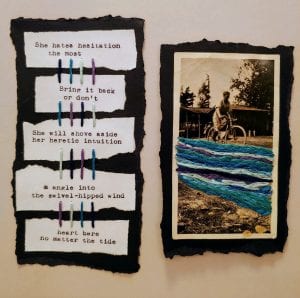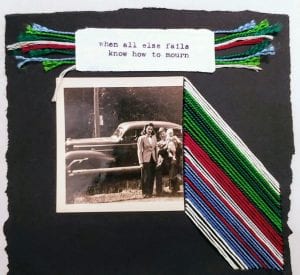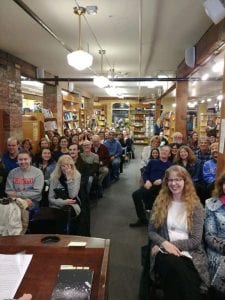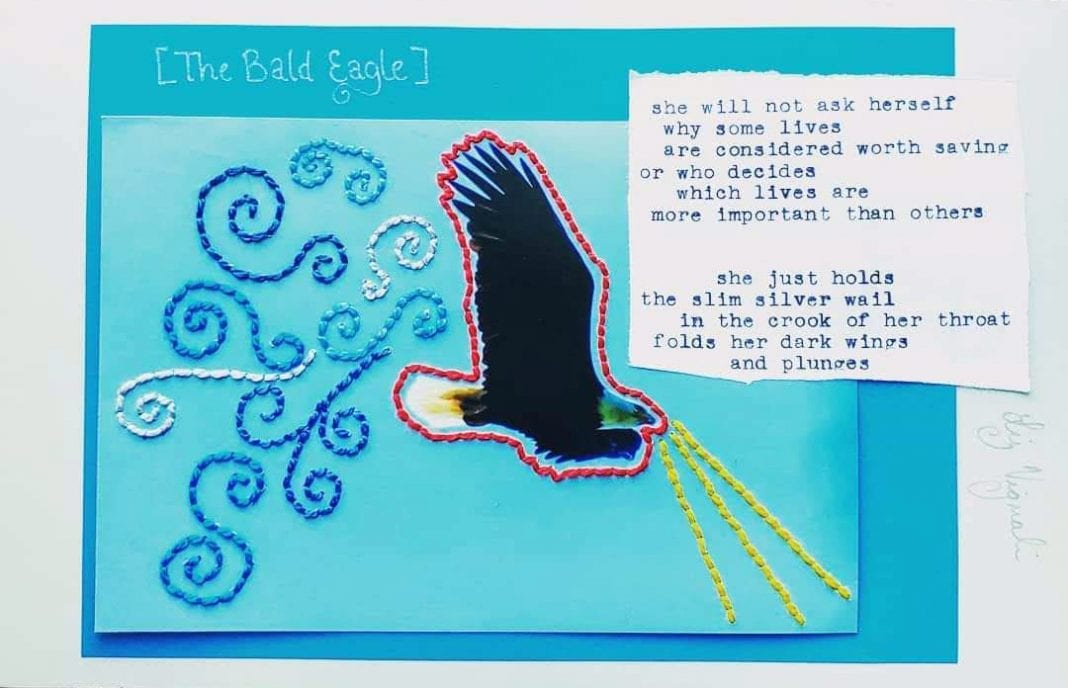If you think you have no connection to poetry, think of the lyrics to your favorite song. When you first heard them, did they say something in a way that stuck, described you, changed you, or captured a moment? Has your understanding of the song changed over time? Lyrics are poetry, and poetry has been giving us bits of perspective, joy, and connection to people and ideas for centuries.
April is National Poetry Month, an annual celebration of poets and poetry in our culture started by the Academy of American Poets in 1996. Activities range from reading and appreciation to daily writing pledges. As the pandemic continues to disrupt almost everything in our lives, the timelessness of poetry might just find a place.
Poets.org is an online resource of the Academy of American Poets. It offers, “as we face an unprecedented circumstance, National Poetry Month has taken on new meaning and importance. More and more people are turning to poetry at this moment, because poetry and inspiring language can help bring solace and needed strength.”
If you don’t know where to start, here’s the good news: there are many ways you can invite a little poetry into your life, and several resources are detailed below.
Include Some Poetry in Your Every Day, April and Beyond

National Poetry Month can be easily hailed from home, especially with this handy list of “30 Ways to Celebrate at Home or Online.” Some ideas include signing up for “Poem-a-day” emails or podcasts, reading last year’s most-read poem on the platform, or kicking off your next meeting with a poem. You’ll find wonderful resources and lots of poems to choose from at poets.org.
In response to the pandemic, Shelter in Poems invites readers to take any poem that resonates with them and share it on social media with the tag #ShelterInPoems and include a few words about why it is meaningful. You can search for these on Facebook, Instagram, or Twitter, and see what words are helping other folks through the day.
Try Your Hand at Writing
NaPoWriMo (a fun way to say National Poetry Writing Month) takes the party to the next level and challenges participants to write a poem a day for the month of April. Skilled and amateur writers alike participate, often in groups where they must show or post their work either just for each other or linked to public sites such as napowrimo.net.

Kami Westoff teaches creative writing at Western Washington University, is the faculty advisor for Jeopardy Literary Magazine, and has an established publishing history in many styles of writing. Every April finds her facilitating a small Facebook group where poets must post each day by midnight.
“National Poetry Writing Month is always something I simultaneously look forward to and dread. The pace is exhausting, and I often find myself posting my poem just minutes before the midnight deadline, often with a grumbling comment about the ridiculousness of such an endeavor,” says Westoff. “This year is no different. What has changed, though, is that not only are my group mates my partners in this exhilarating and often heartbreaking process, but they’re also my primary connection to the world. The appreciation for each other and the words we share has always been there, but it definitely seems more intense, emotional, and desperate at times, yet still, always nourishing.”
If you don’t know any poets to join forces with, you could start an easy ice-breaker activity with your friends such as the collaborative poetry game called Exquisite Corpse. In this game, each person adds on to a poem that no one sees until it is finished. In a Renga, each person adds a stanza, but can see the previous work, so it is more collaborative.

These games are useful because the end product is not always the goal.
“The daily task of writing a poem always changes the way I view and interact with my surroundings, especially those in nature,” says Westoff. “In The Book of Delights, [author] Ross Gay invites the reader to practice being observers of things that bring you joy, instead of getting hyper-focused on what troubles us. My poems are rarely about joy, but just the practice, the ritual of observation, which I do more of every April, brings me closer to it.”
Poetry Fun for the Family
If you’re spending a lot of time with family, poetry is something everyone can do together, and here are some suggested poems for kids. Teach This Poem is a resource meant for teachers but can make a wonderful family activity—a poem is read and then considered against interdisciplinary resources such as art or social sciences.

Westoff shares her own take on this, tailor-made for the Pacific Northwest:
“I really like the idea of taking one activity and applying it to various disciplines. For example, we went for a walk to the beach at low tide a few weeks ago to check out the creatures. I had [my children] keep track of the miles we drove, how much gas we used, and the distance between the car and beach, etc. (physical activity & math)
I then had them take pictures of as many living things they could find. At home, they found one type of fact for each animal: What do they eat? How do they move? How do they reproduce? What are their predators? What is their prey? (science)
They then chose one or two animals to write a poem or short story about. (language arts)

And then they sketched, painted, or drew the animal. (art)
I had them then build a habitat for a creature of their choice out of cardboard, old dishes, plants, rocks, etc. (engineering, math)
I had them compile their documents, pictures, and findings into a booklet.
This can take up hours, and be really useful in creating lasting knowledge.”
Not Just for April
Poetry is timeless, so please use April as inspiration and carry your poetry activities into May and beyond. “In this time of uncertainty and great concern, we can rely on poems to offer wisdom, uplifting ideas, and language that prompts reflection that can help us slow down and center mentally, emotionally, spiritually.”
– The Academy of American Poets
All poems and mixed media are Elizabeth Vignali.










































